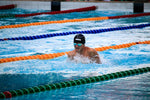
The Importance of Hydration for Swimmers
, by Sandesh Prasannakumar, 9 min reading time
Stay tuned, Your Favourite supplements will be back in stock soon!
Stay tuned, Your Favourite supplements will be back in stock soon!
Stay tuned, Your Favourite supplements will be back in stock soon!
Stay tuned, Your Favourite supplements will be back in stock soon!
Stay tuned, Your Favourite supplements will be back in stock soon!
Stay tuned, Your Favourite supplements will be back in stock soon!
Stay tuned, Your Favourite supplements will be back in stock soon!
Stay tuned, Your Favourite supplements will be back in stock soon!
Stay tuned, Your Favourite supplements will be back in stock soon!
Stay tuned, Your Favourite supplements will be back in stock soon!

, by Sandesh Prasannakumar, 9 min reading time
Water is a very important necessity in all forms of swimming, whether for competition or fun swimming. In addition, water is vital in the improvement and overall well-being of a swimmer. It’s important to know that during practices or actual swim meets, swimmers tend to sweat heavily; thus, they should replace the fluids and electrolytes they have lost. When the loss is not replenished adequately, exhaustion and the subsequent muscle cramps, fatigue, and poor performance occur within a short time only.
We add competition and training as the forces affecting swimmers and regular daily hydration. The study also shows that being even a little thirsty has consequences on energy, the ability to bounce back after a task, focus, and temper. Another reason chronic dehydration may be detrimental is that if the swimmer is still growing, it can hamper growth.
The concept here is learning the type of drink, the time for the drink, and the amount needed to replenish the body. The solutions will assist swimmers in identifying a plan that will suit them best regarding water and general health.
Hydration provides a long list of benefits for those spending hours training in the pool each week:
Swimmers, especially, are proven to require more fluid intake than the average individual, thus making endurance athletes a major category. Certain times require extra attention when it comes to hydration:
Before – Start ‘fueling up’ at least several hours before actually going swimming. If one starts practising even slightly dehydrated, fatigue and performance loss start from the first lap.
During – Make sure you take water between sets, especially when doing heavy workouts. During the meetings, it’s better to consume fluids during usual breaks rather than try to catch up after the meeting. These breaks are important most in hot pools, whereby sweating increases and the body loses a lot of water.
Late – As for Post-workout, the rehydration is best done immediately. Always ensure there are easily digestible foods and electrolytes for the body to start the recovery process as soon as possible after the journey home.
Daily – Establish a healthy hydration pattern throughout waking hours as the standard for daily life. Small deficits build up rapidly, so it is crucial always to take enough daily to avoid becoming dehydrated. Information about requirements can be obtained by examining the colour of the urine.
The proper hydration strategy differs significantly depending on the individual’s sweat activity, the type of workouts, climate, and individual physiology. Use these tips as a starting point:
A swimmer training two hours per day could follow a schedule like this:
As for the specifics, it is very individual and depends on the choices and requirements of the person. Timing is one of the most important factors, and it requires some experimentation during the training process. Focus on what kind of looks and feelings different schedules produce. However, it is advisable to avoid drinking a lot of water before intensive exercises as the body will be well-hydrated most of the time.
The significance of water drinking can, therefore, be seen in providing concrete performance and recovery benefits to both the performing and amateur swimmers. Locate an individual diet strategy that would address increased demands for energy during practices and meetings. Staying constantly hydrated has its impact, which is evident both in the bottle and the sea. Here is some advice to help manage your hydration and create a good hydration plan.
For all your protein and supplement needs, visit Genetic Nutrition!
This means that the ideal choice renews the body fluids, the required means of which are either fluid or electrolytes that replace heavy sweat losses. Traditional sports drinks are effective in terms of application, particularly for sessions that take up to 90 minutes at higher intensity. For very long exercises, the athlete is advised to incorporate a carbohydrate-electrolyte solution to prevent depletion.
2. At what age should a swimmer begin consuming sports drinks?Youths swimming long yardages or doing many intervals can benefit from sports drinks. But, of course, everything has its measure; even water intake, which reduces dental health risks, contains sugar if taken in large quantities and contributes to excessive calories. It should be saved for intense training sessions that exceed 90 minutes and always under the supervision of a professional trainer.
3. What are the different signs of dehydration while swimming?Symptoms of dehydration include dry mouth, tiredness, muscle contraction, headache, reduction in workout capacity, hot skin, absence of sweating, darker-coloured urine, and dizziness. As for more obvious signs, they are harder to decipher; they include crankiness, lack of tears, dry lips, or even drowsiness. Calculations of fluid losses can be conducted by weighing before and after practice. There could be one or two indicators that things are wrong, and once these appear, one should act quickly.